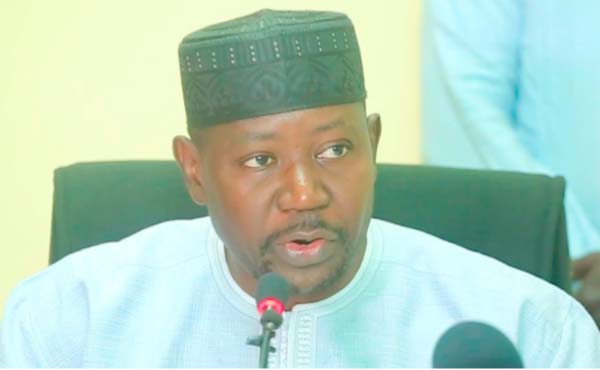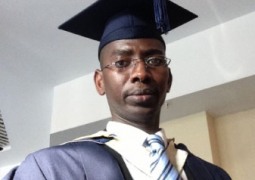
Members
of the National Assembly yesterday amended two bills, namely the 1997
Constitution (Amendment) Bill 2017 and the Elections (Amendment) Bill 2017.
The
1997 constitution amendment bill, introduced by Interior minister Mai Ahmed
Fatty on behalf of President Adama Barrow, amends the constitution to revise
the compulsory retirement age of a judge of a Superior Court, and to remove the
upper age limit for holding office as President of The Republic of The Gambia.
Mai
Fatty told deputies the amended constitution extends the age at which a judge
should vacate his or her office from 70 (seventy) to 75 (seventy-five) years,
and sets no upper age limit for holding office as President.
“It
is envisaged that this will facilitate and encourage qualified, competent and
experienced Gambians to be appointed as judges of the Superior Courts or be
elected to political office,” Fatty added.
The
bill was seconded by Hon. Netty Baldeh, member for Tumana, who said the bill
was non-controversial, adding that this is a bill that would protect the
citizens of The Gambia, because they are the people who elect their leaders
into office.
For
the bill amending the Elections Act, which Fatty tabled on behalf of the
Attorney General and minister of Justice, the Interior minister said it seeks
“to encourage the widespread participation of the ordinary citizenry in the new
democratization dispensation.
“It
does so by amending the Elections Act to reduce the current deposits payable by
candidates for elections to the offices of President, Member of the National
Assembly, Mayor or Mayoress, and Councillor to the previous deposit figures.”
Minister Fatty said democracy is the
participation of the citizenry, and they all know The Gambia is among the
poorest countries where poverty is high.
The
salaries of most Gambians are low, and the revenue that is derived from
commercial activities is equally very low.
“If
we do not reduce this amount, we will entangle a large section of our
population who would like to contribute and take part in the affairs of the
public.”
Gambian
lawmakers consequently amended the Elections Act from five hundred thousand
dalasis to ten thousand dalasis for candidates for President; from fifty
thousand dalasis to five thousand dalasis, and from fifty thousand dalasis to
two thousand five hundred dalasis; and from ten thousand dalasis to one
thousand two hundred and fifty dalasis respectively, for the different categories
of candidate mentioned above.




